Teens should master basics before considering lifting weights
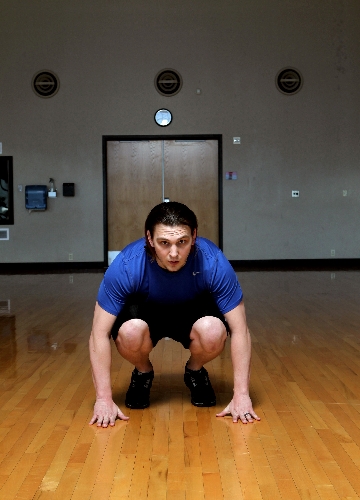

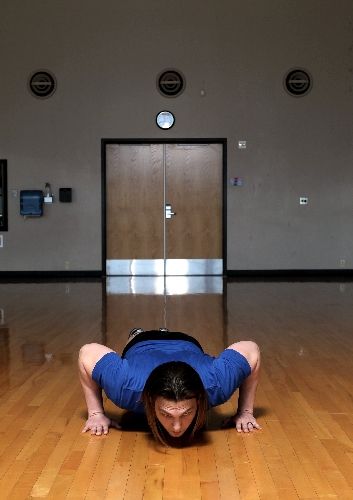
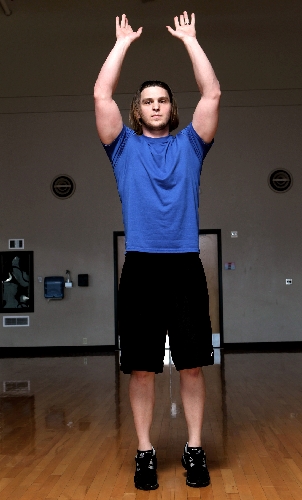
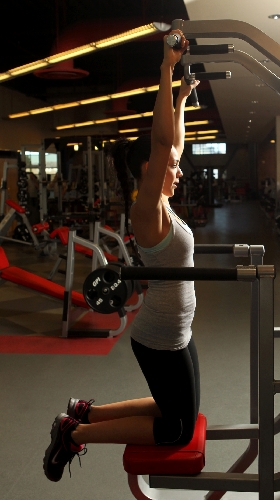
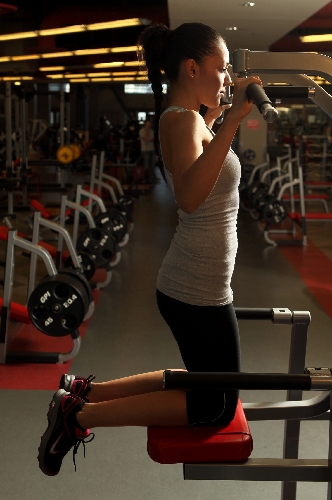
"How old should my teens be before they start to lift weights?" I get that question from parents regularly.
Training teenagers is fun for me because they see results at a faster rate than most other clients. The combination of youth and natural hormone levels helps them adapt to exercise and repair muscle tissue fast. Adults in their mid 20s and 30s may require supplements to achieve the same effect.
The caution I give to any teen is not to go too fast. Learn the right form and progressions for any exercise you do. Start with a slower tempo to build tendon strength before moving to power exercises. Be sure to control the weight during the entire repetition. Stronger tendons will be insurance against sports injuries. If you’ve put the time in to be safe during training then you should be safe during your event. Moms hate seeing their kids get hurt.
Using your body weight as resistance is best for teens younger than 16. You can condition the muscles without putting excess strain on the rest of the developing body. Exercises like burpees and pullups are great for developing strength and endurance.
Practice body-weight squats and lunges to condition the legs. (see squats and lunges columns) Using the Smith machine to do body-weight rows and progressing to full pushups is effective, too. (see Smith machine row and pushup column). Be sure to work the chest and back evenly so you don’t create postural problems. If you’re just starting out, then perform the exercises with a slow tempo.
If you’re 16 or older, go ahead and lift weights. But be sure you have the body-weight stuff down first. Why would you move to a bench press if you don’t have the strength to do a pushup right? Why try to sprint if your legs are not strong and the muscles are tight? Master the basics and progress from there.
Research how to do the exercises your program requires. If you learn an exercise wrong then you have to go back to square one and relearn it anyway. Get a trainer to teach you. Reading and doing are very different. You could benefit from a trained eye.
Teaching teens about nutrition gives them a head start in understanding how food works with the body. Learn that protein comes from meats and beans. Vitamins and nutrients come from vegetables and fruit. What are electrolytes and when does your body need them the most? Which foods are superfoods? The egg is one of them. Can you name some others?
Supplements are not advised for youth unless it’s a multivitamin or doctor prescribed. Let the body develop naturally until the age of 18 and then consider supplements if desired. Avoid energy drinks. There’s plenty of time to learn the effects of caffeine in college. Sleep is always the first thing to go when there’s a term paper deadline. Get enough sleep each night. You may feel that you can go without it, but your body needs it.
I also recommend getting protein from food instead of supplements. Most teens don’t need to get protein from supplements anyway. The body will only absorb so much protein each day. The recommended daily allowance for protein is 0.8 grams per kilo of body weight. Athletes will need more. However, anything more than twice that, especially for a youth, can have negative effects.
For a teen weighing 150 pounds that would be about 55 grams of protein a day. Mom can make that easy. An egg has about 6 grams, a can of tuna is about 20 grams, and a chicken breast is about 30 grams. I would stay away from burgers. They have about 12 grams of protein but are loaded with fat.
The two exercises this week require only your own body weight for resistance.
Chris Huth is a Las Vegas trainer. You can contact him at 702trainer@gmail.com. Before beginning any exercise program, consult your physician.
Photos for this column were taken at UNLV’s Student Recreation and Wellness Center. Although the facility’s primary clientele is students, faculty and staff, the center also welcomes community members 18 and older at a monthly fee of $25. You can contact the service desk at 774-7100 or by email at srwc.memberships@unlv.edu.











